A major Defence Committee report released today raises persistent concerns about the UK’s force structure, readiness and ability to meet core NATO obligations, including the Article 3 requirement to “maintain and develop individual and collective capacity to resist armed attack.â€
The committee argues that the UK’s diminishing mass, slow delivery of promised capabilities and failure to resource homeland defence programmes place both national security and alliance credibility at risk.
The report sits within a broader warning about the UK’s ability to defend its homeland and overseas territories. It concludes that the UK remains a leading European military power, but that leadership is increasingly fragile because the UK and its European allies “have failed to invest in critical capabilities and remain over reliant on the US.†Committee chair Tan Dhesi MP says “we cannot afford to bury our heads in the sand,†citing Russian aggression, disinformation and repeated airspace incursions. He argues that readiness must now be treated as a priority and that the UK should lead efforts to replace US capabilities if Washington steps back.
Alongside these themes, the report’s NATO section highlights specific structural weaknesses. The committee notes that the UK holds 1,053 NATO posts, with “8% unfilled in mid 2025,†and that families deployed to NATO installations face “inconvenience and in some cases hardship,†including disrupted medical care and careers. It says the government’s stated NATO First posture cannot function without a stronger force base.
The conclusions are stark. The report states that witnesses pointed to “a lack of mass, delays in developing promised capabilities in line with NDPP timelines, and a failure by the UK to meet its Article 3 commitments.†It adds: “We were concerned to hear that the UK’s lack of mass is denuding its leadership in NATO.†It goes on to describe insufficient resourcing for Article 3 as “a further failure of leadership.â€
Beyond NATO, the report criticises the sluggish progress of the Home Defence Programme, noting that work remains unfinished a year after its intended completion. It says cross government working on resilience is “nowhere near where it needs to be,†and describes Cabinet Office leadership as “inward focused.†It urges the government to publish a clear timetable and repeats calls for a Minister of Homeland Security.
To address the shortcomings, the committee recommends that the government set out how it will implement the Strategic Defence Review, publish annual updates, and provide classified briefings on NATO commitments. It says ministers must articulate a coherent plan to strengthen the defence industrial base and avoid over dependence on the United States. It also supports a national public engagement effort, arguing that “the public need to understand not only the necessity of defence but also their role in it.â€
Dhesi frames the report as the committee’s foundational piece of work this parliament, saying it “should be a wake up call for the Ministry of Defence.â€




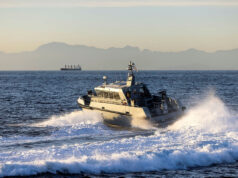
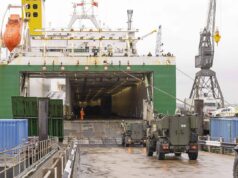
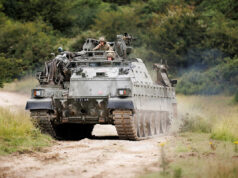

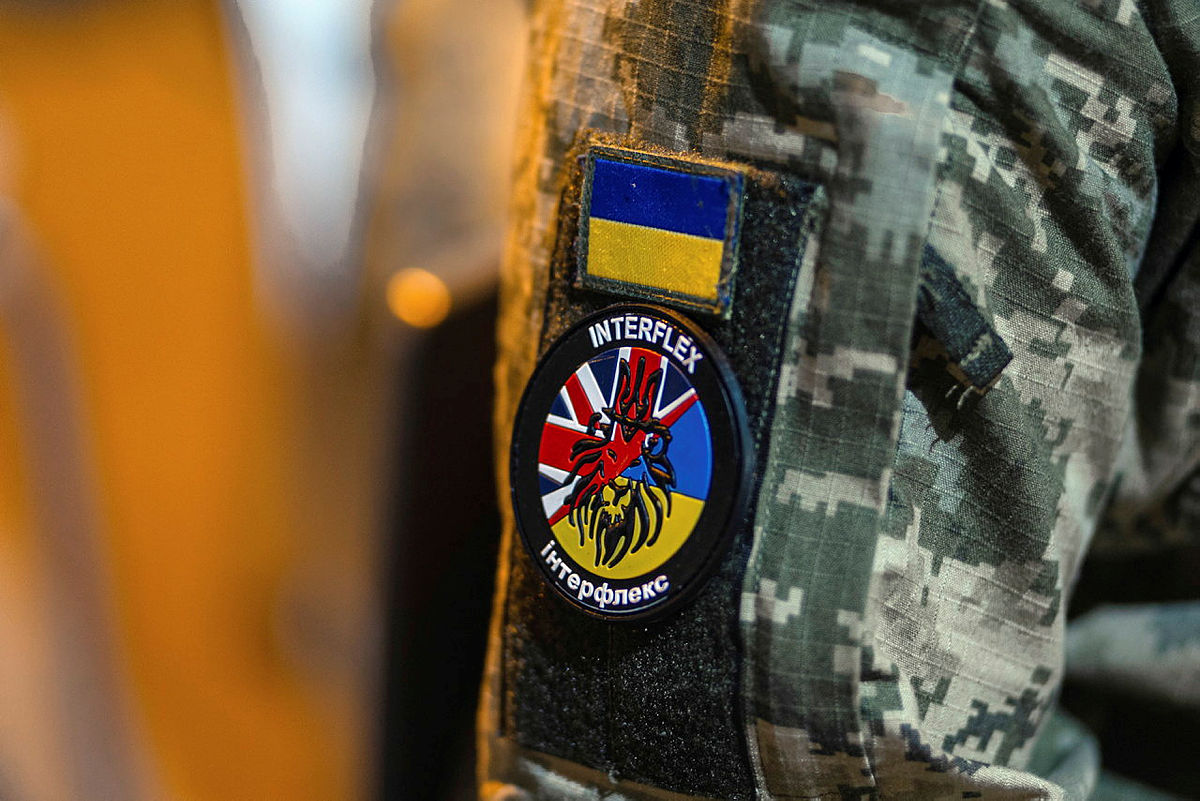
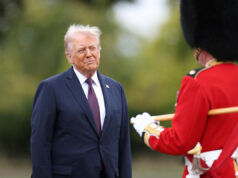




Blimey, I thought it said “Stinking Mess” there for a brief moment.
Must wake up properly.
(double meaning in that one).
‘There is an unequivocal need for the UK to redouble its efforts within the Alliance and to step up its contribution to Euro-Atlantic security more broadly—particularly as Russian aggression across Europe grows and as the United States of America (US) adapts its regional priorities. The defining principle of this Review is therefore ‘NATO First’
‘Role 2: Deter and defend in the Euro-Atlantic: providing one of two Strategic Reserve Corps to NATO…The Army must modernise the two divisions and the Corps HQ that it provides to NATO as one of the Alliance’s two Strategic Reserves Corps (SRC). The SRC should be led by the Corps HQ (Allied Rapid Reaction Corps) and enabled by, and command, Corps-level capability.’
SDR 2025
Where are we, at the moment?
‘I can absolutely assure the Committee that we can provide a trained divisional headquarters and certified and assured brigades—16 Brigade, 7th Light Mech Brigade Combat Team, and an armoured brigade—but there will be capability gaps in our ability to get there and our ability to sustain it for time.’
Gen. Sir Patrick Sanders, H of C Defence Committee Oral evidence: Armed Forces Readiness, 7 November 2023
How much time do we have? If Ukraine crumbles, maybe two to three years….
What to do?
Drop net zero. The (modelled) assumptions upon which ‘net zero’ is based are very far from being scientifically evidenced in any case. At a conservative estimate, that will free up 1-2% of GDP immediately.
‘BEIS’s [the Department for Business, Energy and Industrial Strategy’s] own analysis find the costs to be 40% higher, at around £70bn per annum, but still within the annual cost envelope of 1–2% of GDP estimated by the Committee. On the basis of these estimates, the total cost of transitioning to a zero-carbon economy is likely to be well in excess of a trillion pounds.’
We know what to do with a 1-2% increase to the Defence spending because we have just had a Strategic Defence Review.
let me explain the flaw in your logic. The cost of transitioning the electricity grid away from Qatari and Russian gas to wind power is paid for not by the government but by private companies and consumers.
You can cut this as much as you want and it won’t make a dime for the treasury. The loss of revenues created through not building these renewable projects will result in a reduction in tax paid to the Treasury.
I suggest if your that ill informed on government expenditure you refrain from sharing your opinions because your simply muddying the water.
Better do your research from some where other than the daily mail.
It’s impossible to provide reliable figures for the cost of trying to reach net zero. Public money has been committed to carbon capture and new electricity generation may well need government support. Resuming North Sea exploration might help bridge the gap between now and the coming on stream of new SMRs.
Ukraine war has shown the vulnerability of power stations, on both sides. They are an obvious high impact target. More defensive systems are needed but in addition, we need to prioritise long range precision strike to deter attacks in the first place.
The threat of strategic long range precision strikes will only deter strategically, given parity in strategic weapons.
That is the point of a conventional deterrent.
‘….even if one believes that an attack on Western Europe is not a very likely scenario, (one) still cannot view the growing strength of the (Russian) Army in Eastern Europe without a certain uneasiness. For that Army not only serves the (Russians’) legitimate security interests, but it also exercises an influence on the Atlantic Community that could be in the long run as fatal as naked aggression. The Russian Army in Eastern Europe…… is a powerful political instrument. It is a vital element in the modern strategy of the Russian Federation.’
LAND FORCES IN MODERN STRATEGY, LIEUTENANT GENERAL DE WITT C. SMITH, JR. US ARMY 1977
We know what to do. We’ve done this before. It works.
And, if we drop the ridiculous, profoundly silly, idea of net zero, we can restore a verifiably credible conventional deterrent in short order.
I refer you to my comment below.
Sorry but net zero is probably just as vital to our national security as improving our military defence.
Firstly reducing our dependenc eon imported gas and oil has obvious strategic benefits secondly if the north atlantic conveyor shuts down (and there are increasing signs that it may do so) Britians climate is likely to end up involving pack ice. The science is well founded the only people that deny it are those with vested interests in obvuscation
76% of the gas we imported in 2023 came from Norway. In 2024, domestic production sites in the North Sea produced enough gas to supply 50% of the UK’s demand. It is estimated that there could be up to 14 billion barrels worth of recoverable oil and gas remaining in existing North Sea fields. Meanwhile the modular nuclear opportunity begins.
If net zero is vital to our national security, then we are doomed. None of the major emitters are going for net zero, as you must know. They are not going for net zero because they know that such a silly and unevidenced idea is based on pure hokum.
One word. Banjaxed. Because lack of political will and commitment by a succession of governments? Because of a lack of realistic vision, we are not a world power. The focus has to be Europe, the Atlantic and far north. When will people wake up to facts? I guess when Chicom ships are based in Murmansk.
……Or based in North Africa
Exactly.
The critical bit is cabinet office inward focussed.
The sole focus is on disguising how little is being done.
Nothing to see here, every thing is fine no problems triple the lethality by 2030, lots of projects and meetings and focus groups on it. No need to buy new kit or even get the stuff we ordered working properly its all good. We are ready for war. The out going CDS would not lie would he or bend the truth. By 2030 we will be ready we have service plans, a few ideas and some may be stuff lined up.
I can not see the problem, smaller army a lot less kit, saves money. job done.
FINALLY. This is FINALLY being talked about.
The Defence Committee have been producing reports like this for a decade. Nothing happens. Senior members of the military are still talking about balancing warnings with an obligation not to panic the people.
When will it be the right time for the people to panic?
Since TB Liars time most senior officers have been political yes men. Still are and I see no changes imminent.
John, it seems that senior army officers, when serving, have been less afraid to speak of their concerns in recent years – Dannatt, Jackson, Sanders.
However senior officers have zero influence in talking politicians and Treasury out of making cuts.
They have been talking about it for years ….. plans, budget, action, tangible results, recruitment, timely procurement …. that’s what we lack.
Refreshing to see no MoD spokesperson at the end with the stock standard reply….”biggest sustained increases since Cold War….safe at home, strong abroad…blah blah flipping blah.”
And of course, nobody is there to contradict them.
‘The report sits within a broader warning about the UK’s ability to defend its homeland and overseas territories’.
It seems to me that we make a fair go at deterring/defending the Falklands and have the capability to defend the Cyprus SBAs from most threats except missile attack. As for the homeland and the other overseas territories and bases, our defences have so many holes that you could conclude that they are virtually undefended. I believe this committee recently revealed that the MoD did not even have a contingency plan to defend the UK.
In terms of defending the Falklands only in so much as the Argentinian forces are essentially non- existent. Withiut Bulwark and Albion we have no assault ships, the Argus is unseaworthy and the Bays are either uncrewed or in need of repair themselves. The T23s are well past retirement date to the extent that some cannot be refitted. T45s HMS Daring hasnt been to sea in about 8 years. Then there’s the carriers that have no Fleet solid stores ship to support them because Fort George was scrapped and Fort Victoria is falling apart in the Mersey. The Norwegians supplied a stores ship for the round the world cruise but I doubt they’d be willing to swnd one to go to war in the South Atlantic. Then there’s the recent anouncement that the gear for rolling landings will not be fitted, meaning no effective CAPs can be flown withiit having to ditch the missiles on return plus the lack of an AEW when crowsnest retires (not that that has ever caused problems). Then the state of the army, under strength, only now juat gwtting some IFVs, Ajax vastly over spent and too big and heavy for a reconaissance vehicle. Who knows how it will do as a replacement for warrior and then “Challemger 3” ehich is really just an upgrade of 10 dozen of the least falling apart Challengers. Then for the RAF, no tranche 4 Typhoons, only 3 E7s (even though we bought 5 radars) no idea what is supposed to happen if one goes unservicable. Only 8 maratime patrol aircraft. F35s that are not compatible with many of our weapons and not able to be upgraded to the latest standards plus diminishing interest in LM in doing so as we’ve bought so few. Not to mention that to avoid spending some money to make the carriers Catobar were now only able to fly the B variant from them essentially limiting the capability of the air wing and limiting the life of the carriers to the F35.
Nothing much to say except the usual – we need to get our act together and quickly.
according to the GFP index the UK is the 6th, out of 145, most powerful nations in terms of armed forces, and the leading european country excluding russia (2nd), with france in 7th, turkey 9th, and italy 10th
Pretty terrible analysis then.
wouldn’t know, have a look at their methodology and see what you think !